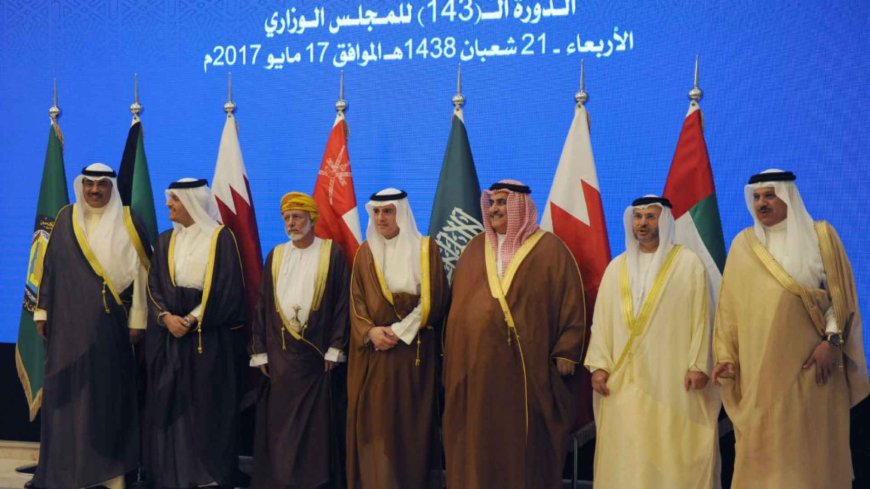The Mirage of Arab Unity: Riyadh's Soft Power Gamble in a Fractured Middle East
Saudi Arabia’s recent foray of cultural diplomacy is nothing short of a calculated pivot in its foreign policy playbook. Long defined by its reliance on brute force and aggressive rhetoric the kingdom now dons a façade of cultural sophistication to mask its underlying ambitions. But beneath this veneer lies a strategy fraught with contradictions one that exposes Riyadh’s desperation as much as its aspirations.

By: A. Yeganeh
Saudi Arabia’s recent foray of cultural diplomacy is nothing short of a calculated pivot in its foreign policy playbook. Long defined by its reliance on brute force and aggressive rhetoric the kingdom now dons a façade of cultural sophistication to mask its underlying ambitions. But beneath this veneer lies a strategy fraught with contradictions one that exposes Riyadh’s desperation as much as its aspirations.
At the center of this charade is the extravagant “Between Two Cultures” festival series in Riyadh a project lavishly funded to manufacture a narrative of shared heritage with neighboring states. The first edition spotlighted Yemen—a nation ravaged by Saudi intervention—while the second shifts focus to Iraq. This strategic redirection is a not-so-subtle attempt to infiltrate the cultural psyche of economically fragile and politically unstable neighbors. Ostensibly promoting cultural unity these festivals are little more than instruments of ideological subterfuge crafted to sway public perception and manipulate allegiances under the guise of shared history.
The pivot to cultural diplomacy is at its core an admission of failure. Years of reckless military escapades from the catastrophic war in Yemen to futile attempts at projecting power across the region have drained Saudi coffers and yielded no meaningful geopolitical dividends. Now in the aftermath of these costly blunders Riyadh hopes to achieve with "soft power" what its tanks and warplanes could not: influence without overt confrontation. Yet this “soft war” is no less calculated or insidious. Drawing from the Western playbook it seeks to reshape the hearts and minds of the region’s youth—those most active on social media and by extension the most impressionable.
But Saudi Arabia is far from alone in this ideological battleground. Turkey with its arsenal of wildly popular television dramas and nationalist narratives has long dominated the cultural landscape of West Asia. Ankara’s propaganda machine skillfully intertwines themes of Islamic unity with Turkish exceptionalism capturing the imagination of Muslim audiences while undermining Saudi Arabia’s Wahhabi credentials. This cultural duel is not mere entertainment rivalry; it is a clash of competing visions. On one side Riyadh clings to the rigid orthodoxy of Wahhabism; on the other Turkey propagates a neo-Ottoman version of pan-Islamic leadership inspired by the Muslim Brotherhood.
Meanwhile Crown Prince Mohammed bin Salman’s much-hyped vision for a “Union of Arab States” smacks of both hubris and delusion. Modeled after the European Union this grandiose idea assumes that the fractured Arab world can somehow coalesce into a harmonious bloc under Saudi leadership. But how can this dream materialize when the region remains paralyzed by unresolved crises? From the enduring Palestinian struggle and Arab-Israeli tensions to the deepening Saudi-Iranian cold war the notion of Arab unity is little more than a mirage. History offers a sobering lesson: lofty aspirations that ignore the realities of fragmentation are doomed to collapse much like the League of Nations’ ill-fated attempts to impose order on a fractured world.
Saudi Arabia’s focus on Iraq as the focal point of its cultural offensive is revealing. Iraq’s youthful digitally connected population represents a fertile ground for Riyadh’s ideological experiments. Yet this maneuver reeks of cynicism. By targeting Iraq’s next generation Saudi Arabia hopes to implant its narratives and secure a long-term foothold in a country still grappling with the scars of foreign intervention and sectarian strife. It’s a move as opportunistic as it is brazen underscoring Riyadh’s willingness to exploit regional vulnerabilities to advance its own agenda.
The stakes of this cultural tug-of-war are further heightened by the rise of competing ideological forces. Turkey’s Brotherhood-inspired messaging and the resilience of Iran-aligned resistance movements form the other two pillars of a tripartite struggle for West Asia’s future. Saudi Arabia backed by Western powers seeks to carve out a sphere of influence that neutralizes both Ankara’s pan-Islamic ambitions and Tehran’s revolutionary ethos. But in a region rife with contradictions such ambitions are unlikely to materialize without exacerbating existing tensions.
Ultimately Saudi Arabia’s turn to cultural diplomacy is not the olive branch it pretends to be but a weapon in an ongoing struggle for regional dominance. While Riyadh cloaks its intentions in the language of shared heritage and unity its true aim is to outmaneuver its rivals and entrench its influence. Yet the region’s deeply fractured geopolitical reality may render this strategy as fruitless as the military misadventures it seeks to replace. The question remains: will this soft power gambit heal the fractures of West Asia or merely widen them further?













































